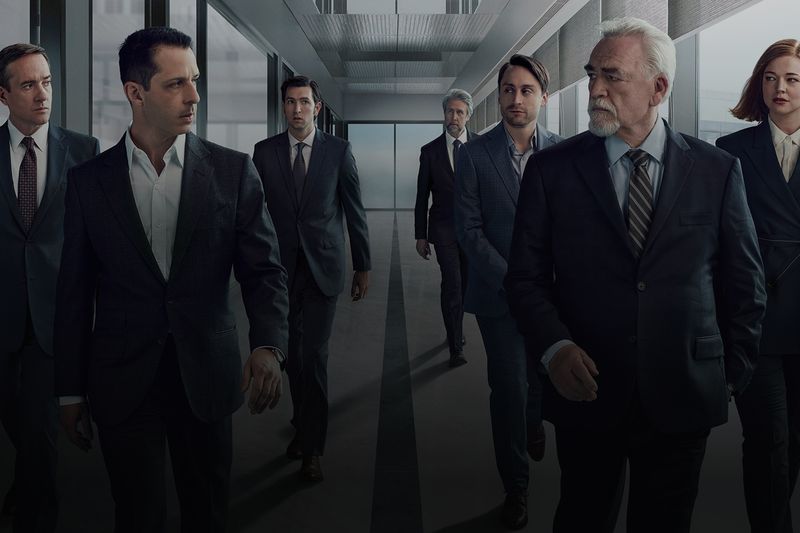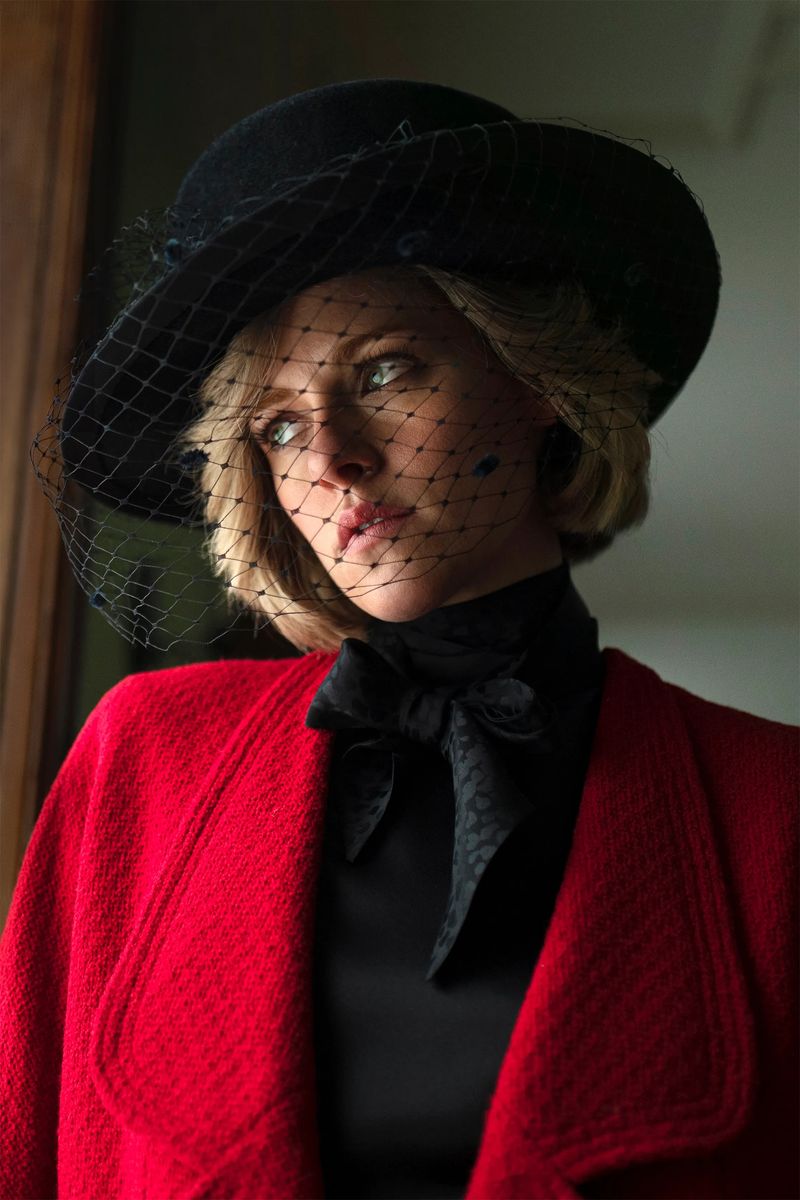Dear Gentle Reader (yes, I’m sticking with it),
expectations—a double-edged sword. A month ago, I promised you bi-weekly issues. Didn’t happen. And here’s why: I’m committed to quality over quantity.
So here we are, but what's next? Do I quit? Do I pretend like I didn't make any promises? No, I can't do that. I adjust. Expectations, when not met, are not the end of the world. Adjusting my promise wasn’t easy, but it was necessary. It's not a failure; it’s part of the process.
Consider for example Netflix–originally a DVD rental service. When they sensed a shift in consumer's behaviour, tendency to opt for streaming, they didn't cling to their original model. Instead, they adapted, embracing the streaming technology, becoming the entertainment giant they are today. Their willingness to adjust wasn't a failure, at all, it was a showcase of visionary leadership.
Similarly, Pixar and their Toy Story 2 switched to full theatrical release when they saw its potential, or Cirque du Soleil laid off more than 90 % of its staff (4400 people) during a pandemic to preserve the core of their company. Adjusting is what keeps you moving forward, keeps you alive. So now, let’s dive into expectations: setting them, missing them, and knowing when it’s time to adapt.
Setting Expectations: The Fantasy and the Reality
Two years ago, I stepped into the role of Head of Production at Cirk La Putyka & Jatka78 with a clear vision—budgets, schedules, slick workflows, you know, the usual. I had a plan for 2023/2024. But the thing about plans is—they usually don't survive contact with reality.
Look, don't get me wrong—plans are great. And you need them. But you know what's even better? Adaptability—being able to make changes based on the current situation. Decisiveness—being able to decide on those changes fast.
Leadership is not about being in charge. It's about taking care of those in your charge
That's a quote of one of my role models, Simon Sinek, and he's right. So when somebody asks me what my job is, I just reply with “I ensure my people have the best possible environment to thrive in”.
The reality of heading up a production department is much less glamorous than one might think. First of all—the work I was quite good at (spreadsheets, dashboards, presentations) is now my reward I do, mostly, after hours. During the day I do what the job actually is, which is dealing with people, managing their expectations and needs, putting down constant fires and doing my best to stay at least half a step ahead of the next crisis.
Being in charge, being a leader, it isn't about controlling every detail—quite the contrary. It’s about making sure your team has what they need to succeed, it's about trusting them they can do their job. So, one of the first things I had to let go was the idea that the job is what I thought it will be, and get comfortable with what the essence of my job actually is—ensuring my team has what they need to succeed.
Adjusting Expectations: It's Not the End of the World
Alright, enough chit-chat, let’s get real—adjusting expectations feels like a failure, especially at first. But it is not. It's a sign of growth, of maturity. It means you are responding to reality and you stopped clinging to a fantasy. It's also a point where most people get stuck—they panic, they make excuses, or worse, they start avoiding the issue altogether or pretending like nothing went wrong. This I know, because in the past, I've done it all.
Here’s the better path: acknowledge it, own it and then adjust. When I realised I am unable to deliver Spotlight+ bi-weekly, I had two choices: push through and publish something half-baked, or adjust, work through it and create something stronger. And since I am all about quality over quantity, the choice was pretty clear (although not easy).
It helps looking at it from afar. Gary Vee preaches macro patience and micro speed—in the big picture, I am patient. I know this is the way. I have been dreaming about something like that for over a decade (macro patience). And in the short term, I had to make an adjustment quickly (micro speed).
As a producer, you must get comfortable with changes, with adapting and with happening it quicker than you thought it would. We plan for the worst, hope for the best, and are willing to do what's necessary to make sure we arrive at the final destination, no matter the conditions along the road. For producers, change is the only constant of the game.
Anyway, back to managing expectations—the key is transparency. When you miss an expectation, be honest about it. Communicate and move forward. And on that note: Spotlight+ will be monthly from now on because I just can’t, realistically, do it bi-weekly.
Transparency in Leadership: How It Shapes Teams
Transparency is another big topic of mine, something I feel strongly about. When I came to the circus, I was very upfront about the fact I don't know a thing about it. I asked so many questions. Some might have thought part of them were stupid, but I didn't care, because I wanted to learn. And because I never tried to hide that, I have built strong relationships with not only my colleagues, but also my team. See, when you're transparent about your shortcomings as a leader, you're being vulnerable, and that helps you create more genuine rapport with the team. You're cultivating trust, fostering a safe environment, and that's the foundation of successful team-building.
And as I said before, most of my job is people. Listening to them, guiding them, managing their expectations and so on. A crucial part of making all of this work is to be able to assemble great teams. I have played team sports since a young age, and one thing I learned early on was that having a team full of A-list players doesn't mean shit if they can't work together.
I will rather work with a team full of average talent, but good chemistry, than rock stars who are unable to play for the team. Any day of the week. Why? Brutal honesty: there are only a handful of A-list players who do not have a huge ego. End ego is something that you can't let in when working in production. We leave that locked away when we come to do the work.
When I teach at universities, I always say—if you don't enjoy the work, if you're not having fun while doing the job, then why the hell are you doing it at all? And I stand behind it. It's not about having fun all the time and every time, but it is about feeling good when you do the job. About enjoying the time with the people you work with. Sure, there will be people you won't like and you will have to work with them, but it shouldn't be your daily bread and butter.
Make sure you surround yourself with a crew you actually like and enjoy working with. Hire slow and fire fast. Meaning hire with intention, know what and who you are looking for. Communicate it properly. Especially when you look to fill key positions. Do not get pushed into hiring people just to fill the shoes. It won't do you any good, long-term.
Leadership is about creating a space where the team—regardless of individual talent—can flourish, grow & succeed. Where they feel safe, can grow and are unafraid of making a mistake. You can have the most talented people in the world on your team, but if they can’t collaborate, it's useless. So, if you’re focusing on finding the best individual talents, you’re missing the point. Find people who can work together, fit the team, people who can support one another, who can adjust when things don’t go to plan, and can communicate. That’s how you build winning teams.
The Key Role of Communication in Expectations
From all my experiences, most of the failures in production are due to weak communication. And to get this one right? That takes time, effort and patience. It's a whole different ball game.
The vital element of good communication? Listening. When I hear some of my friends or students talking about leadership, there is often a notion that good leaders know how to talk, make speeches and most importantly, they give orders and nobody can question them. In my book, that's not a leader, that's a dictator.
To be a good leader, you must be a great listener. You need to gather as much insight as possible before rendering decisions. So that's what I do at Cirk La Putyka & Jatka78. I listen a lot. To everybody. To my team, to cast members, to wardrobe, to marketing, to guests, to management. Sometimes it's what I do all day long—just listen.
The other elements of good communication? Clarity and regularity. As a leader, you have to be clear in your expectations. You need to tell your team what you expect from them. They don't read your mind, they cannot know what you consider a job well done unless you tell them. So make sure they know. Show them, if possible. Lead by example.
And regularity? Well, life throws us curve balls every now and then, as I mentioned before—no plan survives contact with reality. So make sure you check in with your team regularly. You listen to them, you ask questions, you understand what they need. And based on all that, you just might adjust the course as needed.
The Playbook in Action: Turning Words into Results
Alright, let's sum it up: leadership is a lot about managing expectations. About setting them, missing them, adjusting them, but most importantly, communicating them. It's not always pretty, in fact, it rarely is, and it's definitely not easy. But the key is to be transparent enough, and quick enough, to admit when things don't go according to the plan.
Here's what I want you to take away from this: expectations are not something set in stone. You can change them. The real secret is having a flexible mindset, not a fixed one. As producers, we have to adjust to reality, communicate it openly and offer solutions.
That's why I am adjusting the expectations for Spotlight+. It will be delivered monthly, because quality always beats quantity, and I promised to deliver value.
Now, what about you? What are your expectations at the moment? Are they realistic? Or do they need a reset? How transparent are you with your team? And how do you ensure good chemistry throughout the team? Reply to this e-mail, or send me a message on social media, let's talk about it. I am excited to hear your opinions.
Until next time, Jiří
Snapshots
- Idris Elba plans to relocate to Africa within the next 5-10 years to bolster the sub-Saharan film industry, aiming to tell stories that celebrate Africa’s traditions, cultures, and languages, and to move beyond narratives dominated by colonialism.
Handpicked
Celebrating 10 years of John Wick, I couldn’t resist bringing this universe into Spotlight+. I’ve loved every gritty fight, every layer of mythology, and every intense moment of world-building that’s come out of this franchise. The Continental aired last year, Ballerina hits next year, and with each addition, the Wick universe only deepens.
But here’s what really hooked me—after reading an interview with the creators, I realized this world embodies exactly what we’re exploring in this issue: navigating expectations, adapting to survive, and building trust, even in chaos. Keanu Reeves as both a person and as Wick brings a raw honesty to the screen that feels rare, and that’s why this story resonates for me.
John Wick: The Relentless Pursuit of Vision Against All Odds
There's a primal, raw, unfiltered power, and presence, in stories where creators risk everything to stay true to their vision. John Wick is such a story—not only one film, but a full franchise—that shouldn't have worked by traditional, old-school standard. Instead, it made history, forged its own legend.
When it first hit the screens, it might have seemed like just another action flick—a retired assassin on a path of vengeance. But beneath that, if you watched closely, you could feel there's much more to it. Keanu Reeves, Chad Stahelski and David Leitch faced not just skepticism, but outright opposition and doubt from financiers who couldn't see past the conventional approach to action movies.
Everyone wants to side with a guy who is avenging his dog. It’s a universal 'man’s best friend' message; it doesn't matter how many people John kills, we are always in his corner because you don’t fuck with someone’s dog.
— Erica Lee
The powers that be insisted that international audiences won't accept a bearded leading man and that killing a dog would alienate viewers. They even pushed for filming an alternate ending, where the dog would stayed alive. But Reeves and his team understood the soul of their story. They knew that elements such as the beard, killing the dog, the stylized violence, they weren't just artistic whims, they weren't there just because it would look good or shock the audience.
Once you’re making that movie, that’s the movie you’re making, so in that particular case, you can’t not kill the dog.
— Keanu Reeves
These were essential components that gave not only the film, but the whole universe its heart and soul. They took a modest script and envisioned a world far richer and more intricate than anyone anticipated. They saw not just a revenge tale, but a modern myth—a "world-behind-the-world" filled with its own codes, traditions, and lore—drawing inspiration for diverse sources, like Tolkien, anime or Greek mythology. Something that we learned to love and want more of.
Their journey mirrors the very essence of what we've explored in this issue—how plans rarely survive contact with reality, and how true leadership and creativity require adaptability without compromising core values. The John Wick team embraced the challenges, adjusted their strategies, and pushed forward with relentless resilience.
We tried to sell the movie to studios before we started shooting and were turned down by literally everybody. Financing had a huge problem with Keanu with a beard, they had a huge problem killing Alfie Allen, and they had a huge problem with killing the puppy—but, push comes to shove, we either brought them around or we flat out lied and got it done.
— Chad Stahelski
This mindset of never giving up, of deep commitment to their vision, resonates deeply with me. This story is a beautiful and bold example that adjusting expectations does not have to mean compromising the vision. It's about fortitude needed to navigate the chaos, to push through challenges and about courage to stand firm when others doubt us.
We had friends and family walking out of our first test screenings. That how rough it was.
— Chad Stahelski
John Wick's team's journey is an example of how far you can take your vision when you face setbacks head-on and transform them into catalysts.
We had to go with our instincts. Our conversations with Lionsgate at the time were like, 'You can’t kill a dog. It’s bad luck. Any film that kills a dog is not going to be successful.' Our theory was we’re about to go on a revenge spree like no other, and if it’s not justified by some horrific act, we’re not going to get away with it, and people aren’t going to revel in it.
— David Leitch
And because of that, John Wick not just exceeded expectations, it obliterated them. It became a legend of its own, an iconic franchise that leaves legacy for years to come. It should serve as a testament to remind other creative teams what can happen if you refuse to settle, but are willing to adjust. It's a call to action for people like us, who fiercely believe in our visions and have the audacity to see them through, no matter the odds.
The Watchlist: Screened & Vetted
Moneyball (2011)
This isn't just a film about baseball; it's an homage to bold pioneers, challenging the traditional ways. Billy Beane, faced with a limited budget, throws out the old playbook and goes on a hunt for undervalued players. It's a masterclass in resilience, but it also paints a realistic picture of how lonely leadership can be.
Watching it resembles navigating the chaos of production–resources are tight, odds are stacked against you and nothing goes as planned. But instead of chasing after the A-list talent to get a name for their team, our protagonists are looking for people who will fit the team and bring out the best in each other. It's a cinematic blueprint for building teams through trust, adaptability, and the relentless pursuit of a shared vision.
The King's Speech (2010)
This film strips away the grandeur of royalty to reveal the raw vulnerability of a leader grappling with his own limitations. King George VI, burdened by a debilitating stammer, is pushed far outside his comfort zone to unite a nation on the brink of a war. It is an exploration of what it takes to confront one's deepest fears face on, with a spotlight aimed at you on every step you take.
The King's Speech resonates with me thanks to its take on the essence of authentic leadership. It's a reminder that admitting one's weaknesses doesn't diminish one's authority–it enhances it. By being open about King's struggles, he builds a genuine connection with his people, earning their respect and trust. It's a powerful lesson in how vulnerability and transparency can lead to great outcomes.
The Martian (2015)
In "The Martian," adaptability isn't just an asset; it's a lifeline. Stranded millions of kilometres from home, astronaut Mark Watney turns hopeless odds into a survival plan through sheer ingenuity, power of will and relentless problem-solving. His journey is a proof, a testament, of facing harsh realities head-on and adjusting expectations on the go, without surrendering to despair.
This film mirrors the unpredictable landscape of production, where things often don't go as planned, and communication is paramount. Watney's determination and clear communication with NASA shows how adaptability, and effective dialogue, can overcome even the most dreadful challenges. It's an inspiring narrative about the incredible feats achievable when we refuse to give up.
First Looks
In the last issue, I mentioned movie The Order—dark, gritty and unfortunately, realistic. Rewinding back to the 1980s in America, Jude Law and Nicholas Hoult push us to confront the ugliest parts of human nature. The film is a brutal, uncompromising exploration of how radical ideologies take root and spread across society. And given the current climate in the world, this just might be a movie to watch. So until then, take a look at least at the trailer.





